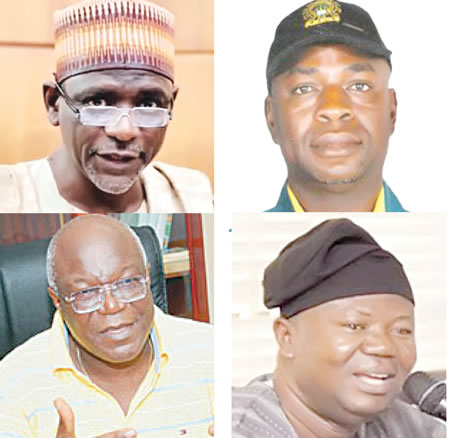IT may not be out of place to say that the expectations of stakeholders in Nigeria’s education sector were not fully met in 2018 as most of the problems that dogged this mother of all sectors remained unsolved.
The sector is still bogged down by poor funding, incessant industrial crises, brain-drain, huge capital flight, poor remuneration, decayed infrastructure, overcrowded class and staff rooms and dearth of competent teachers.
These are not all. The challenges also include Ill-equipped science laboratories and libraries, poor reading habits, high rate of examination malpractices, mass failure in public examinations, inadequate access, poor monitoring, insecurity, and heavy burden of out-of-school children, to mention just a few.
Unfortunately, these challenges run through all the three tiers of education – primary, secondary and tertiary. At the tertiary level for example, the system has been stunted by incessant industrial crises, including the ongoing two months-old strike by the Academic Staff Union of Universities (ASUU) and the one-month-old Academic Staff Union of Polytechnics (ASUP).
Even the lecturers at the colleges of education who only suspended their own strike less than a month ago all have one axe or the other to grind with the federal government bordering on (government’s) non-implementation of agreements voluntarily entered into – agreements pertaining mainly to all-round revitalisation of the system, requiring trillions of naira to make the institutions globally competitive.
The situation is not much different at the lower levels. The Nigerian Union of Teachers (NUT), the umbrella body for primary and secondary school teachers, also calls out its members on strike at will.
Except for the just-ended year that the level experienced relative peace, there had always been crisis-related disruptions in several states, especially those owing their teachers many months salary and allowances.
Strikes have become the most potent weapon in the hands of workers in public schools to draw government’s attention to unfulfilled promises and yearning needs of the system. Sadly, the effects are debilitating – loss of productive time and resources; poor turn-out of students, as well as brain drain, among others.
Stakeholders in the system, including university and polytechnic lecturers; their counterparts in the colleges of education; secondary and primary school teachers with their support staff, as well as workers at various tiers of government seem to be in agreement that the Nigerian education system is in a precarious state and requires urgent and drastic intervention.
The president of ASUU, Professor Biodun Ogunyemi; and his colleagues in ASUP, Dr. Usman Dutse; and COEASU, Mr. Ogirima Nuhu, all believe that if the government had been honouring agreements religiously, most of the challenges facing the tertiary education would have been solved.
They believe that not only does the political class need to prioritise education as to increase budgetary allocations to the sector; but should also optimally use the same to achieve progress in the sector.
Stakeholders noted that all the allocations to education (outside special funds) by the federal government and all the 36 states of the federation and the Federal Capital Territory in the last three years combined have been in the range of eight per cent of an approximate N43.5 trillion total budget.
This, according to them, is grossly inadequate to provide sufficient and functional infrastructural facilities like decent class and staff rooms, safe water, modern toilets, science laboratories, sporting facilities, libraries and Information Technology (IT) facilities, teaching materials let alone ensure payment of good salaries and allowances.
Dutse, the ASUP president, for instance, in a conversation with Tribune Education said, “Government talking of insecurity, corruption and the economy without putting education at the centre will amount to nothing as only quality education can drive meaningful development and engage citizens productively.
COEASU’s Nuhu also underscored the need for government to pay special attention to teacher’s education. Teachers, he said, impart knowledge and skills to students and therefore deserve conducive environment, good remuneration and capacity development that will help them to turn out quality products.
Nuhu believes that Nigeria has enough money to effectively take care of its education sector, but for the lack of political will by people who have been occupying the corridors of power.
The registrar, Teachers Registration Council of Nigeria, Professor Josiah Ajiboye, on his part is more particular about teachers’ professionalism and competency, saying this will be the focus of the council he leads in 2019.
“We will enforce the 2019 December deadline by the National Council on Education to kick out all (charlatans) from the system,” he said.
A former vice chancellor, University of Lagos, Professor Oye Ibidapo-Obe, and the director, Centre for International Advanced and Professional Studies, Lagos, Professor Anthony Kila, also believe that once education grows well, every other sector will do well.
“I expect the government and every other stakeholder to do things differently this year. Government should pump in more money and establish education bank to grant soft loans strictly to willing students and schools, while students should go to institutions where they will study courses that will make them economically relevant and not just a particular school for any available course,” Ibidapo-Obe noted.
In his own contribution, the president, National Parent-Teacher Association of Nigeria (NPTAN), Alhaji Haruna Danjuma, wants parents to be more alive to their responsibilities towards their children’s education and welfare.
“Teachers should be more dedicated and impart real knowledge and skills to their students, while the political class should make money available to run the system well and stop giving excuses of no money. If truly there is no money to provide quality education, where are they getting billions of naira for electioneering campaigns?” He asked.
His view is similar to that of the deputy national president, League of Muslim Schools Proprietors (LEAMSP), Mr. Fatai Raheem. While Raheem asks government to improve on its funding of public education, he equally advocates provision of enabling environment for more effective participation of the private sector in education.
These, they believe, will make the sector record appreciable progress in 2019.






